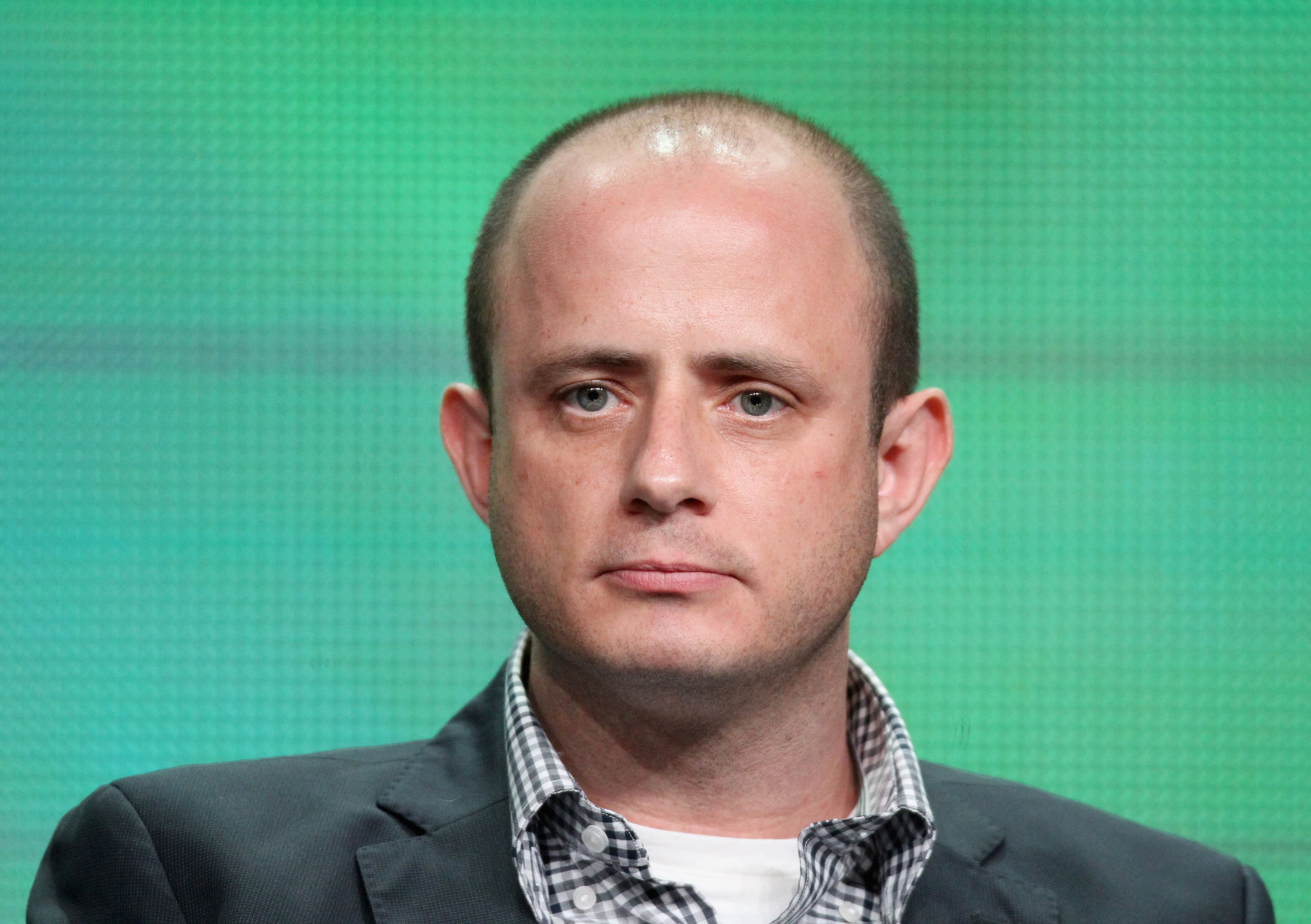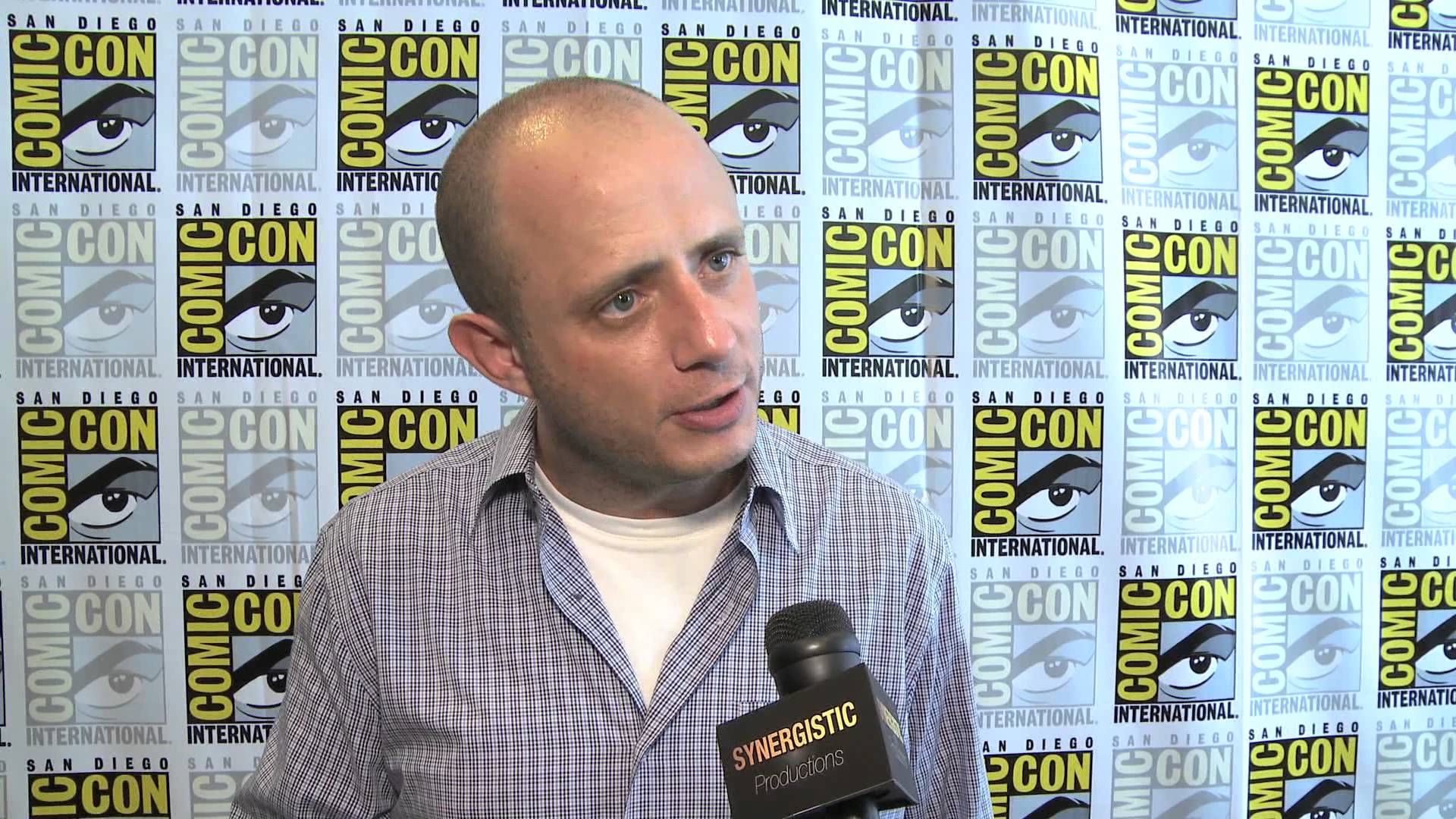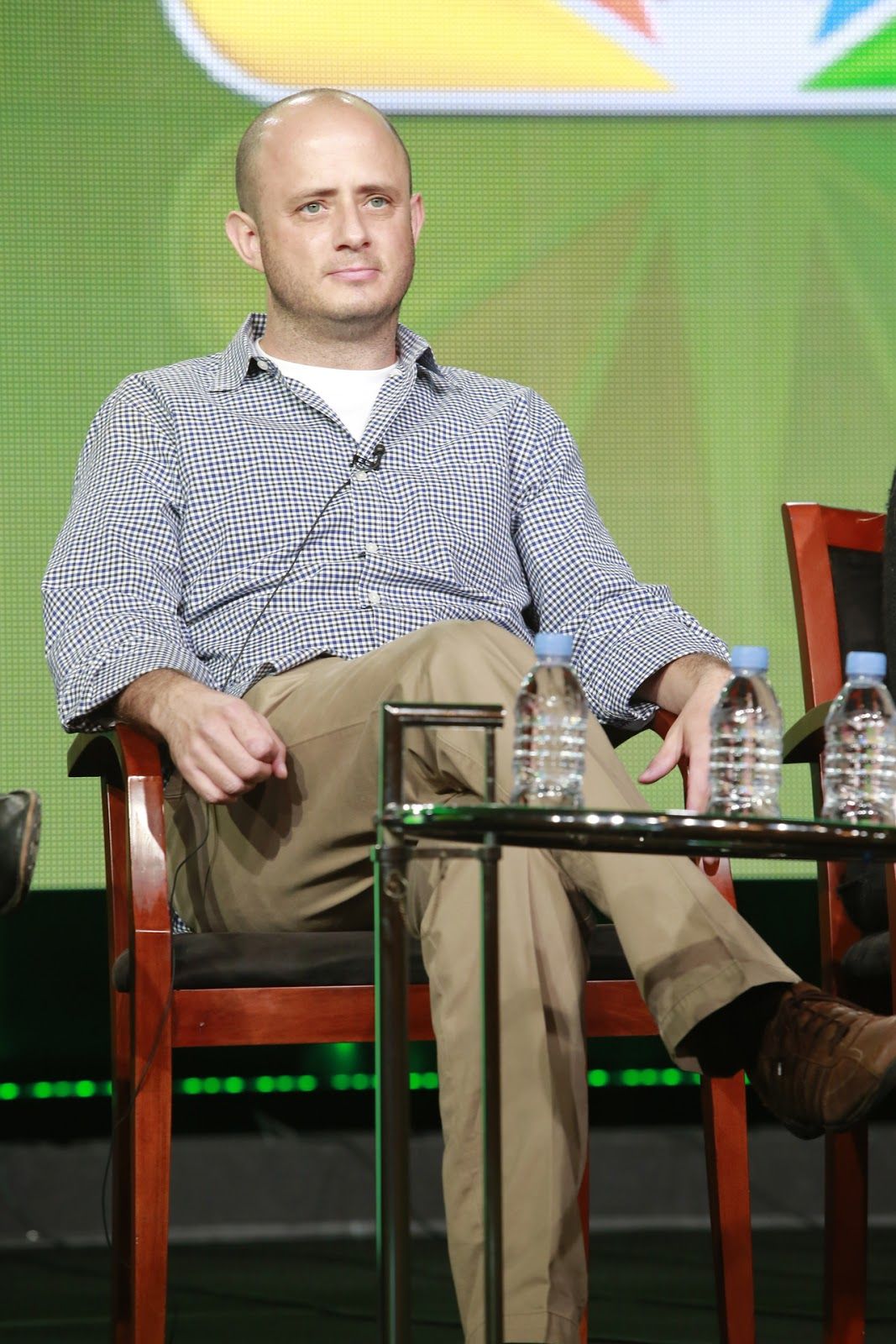Eric Kripke - The Visionary Behind Modern TV Hits
There's a person in the television world whose creative fingerprints are, you know, all over some of the most talked-about shows happening these days. This individual, Eric Kripke, has a way of looking at stories and making them come alive that really gets people chatting. From what we see, his work often takes familiar ideas and twists them in ways you might not expect, leaving a lasting impression on folks who watch. It's almost like he has a special knack for pulling back the curtain on things we thought we understood.
You see, the creative path for someone like Eric Kripke isn't just about making a show; it's also about figuring out what makes a narrative compelling and, well, sometimes even a little bit uncomfortable. He seems to move through different kinds of media, from gaming to sports, even business and the world of digital money, before settling into the television space. This broad background, I think, gives him a rather unique perspective when he builds a new series for people to enjoy.
So, it’s not just about telling a good tale; it’s about how that tale connects with what’s going on in the wider world, and how it might even make us look at ourselves a little differently. His recent work, as a matter of fact, has sparked quite a few conversations, particularly around how art can reflect, or even comment on, current events. We'll get into some of those ideas, and, you know, what makes his creative choices stand out.
Table of Contents
- Who is Eric Kripke?
- Eric Kripke's Bold Narrative Choices
- How Does Eric Kripke Reshape Established Genres?
- Is Eric Kripke's Satire Misunderstood?
- Eric Kripke's Intent for "The Boys"
- Why Does Eric Kripke Challenge Interpretations?
- Where Can We See Eric Kripke's Influence Next?
Who is Eric Kripke?
When we talk about Eric Kripke, we are referring to a creative force who has, you know, really made a name for himself in the world of television. He's a showrunner, a person who guides the overall vision and creation of a television program, and his touch is quite distinctive. He's known for creating shows that aren't afraid to push boundaries and explore rather complex themes, sometimes with a lot of humor mixed in. His background, it seems, spans across various interests, from the excitement of gaming to the strategies of business, and even the rapid changes in the world of digital currency, before he became a prominent figure in the television community, which, you know, boasts millions of people who follow along.
He's the sort of person who, in a way, understands that storytelling isn't just about what happens next, but also about how the audience connects with the ideas presented. His work, like your favorite comfort food, often feels familiar yet always manages to surprise you with a new ingredient. He has, apparently, a deep belief in changing direction when the story calls for it, even if it means letting go of previous plot points to make way for fresh ideas in upcoming parts of a show. This willingness to, you know, shift gears and burn through old story paths for new seasons is something that really stands out about his approach to crafting narratives. It shows a kind of creative bravery, you know, that isn't always common in the entertainment business.
This method of storytelling, where he's ready to, you know, make big changes and introduce new elements, is something that you can see quite clearly in some of his past work. The way certain characters, often referred to as "special kids" in some discussions, were handled, provides a good example of this willingness to pivot and, you know, introduce unexpected developments. It’s a bold move, really, to keep things fresh and keep the audience guessing, which is, I mean, part of the fun of watching his shows. It's almost like he's saying, "Let's see what happens if we take this story in a completely different direction," and that, to be honest, keeps things very exciting for viewers.
Personal Details - Eric Kripke
| Occupation | Television Showrunner, Writer, Producer |
| Known For | Creating and developing popular television series |
| Approach to Storytelling | Belief in narrative shifts, willingness to change plot directions for new seasons, genre reinterpretation |
| Impact | Sparking conversations about satire, societal commentary, and audience interpretation |
| Creative Style | Darkly comic satire, challenging established norms, blending humor with serious themes |
What Makes Eric Kripke's Storytelling So Unique?
So, what exactly sets Eric Kripke apart when it comes to telling stories on screen? It's more than just writing interesting plots; it’s about a particular way he views narrative progression and, you know, the way he handles characters. He seems to have this idea that a story shouldn't just keep going in a straight line, but that it should, in a way, be ready to change direction, even if it means, you know, completely altering previous story paths. This willingness to, basically, "burn plot bridges" for upcoming parts of a show is a hallmark of his creative style. It means that viewers can never quite predict what's going to happen next, and that, I mean, keeps things incredibly fresh and engaging.
This approach isn't just about surprising the audience; it’s also about allowing the story to grow and change in a very organic way. When you're watching one of his shows, you might find that characters you thought you knew well, or situations you believed were set in stone, suddenly take a completely different turn. This sort of, you know, narrative courage allows for a lot of room for new ideas and, well, for the story to truly evolve. It’s almost like he sees each season as a chance to build something new on the foundations of what came before, but without being tied down by every single detail of the past. That, you know, is quite a remarkable way to approach long-form storytelling.
Eric Kripke's Bold Narrative Choices
One of the things that makes Eric Kripke's work stand out is his readiness to make rather bold choices with his stories. He's not afraid to, you know, take a narrative in a direction that might surprise or even challenge the audience. For instance, there's a particular kind of storytelling that involves showing something on screen and, well, sort of pointing at it, saying, "Look at that; isn't that a bit silly?" while, you know, at the same time, the show itself might be doing something quite similar to what it's criticizing. This kind of, you know, self-aware commentary, or perhaps even a touch of hypocrisy, is a very interesting aspect of his writing.
It's a delicate balance, really, to critique something while also, in a way, participating in it. This method can, you know, make viewers think more deeply about the themes being presented, and it certainly adds layers to the show's meaning. It's not just about telling a story; it's about, you know, starting a conversation about the story itself and the ideas it explores. This kind of, basically, meta-commentary is something that, honestly, you don't see every day in television, and it really makes his shows feel quite distinct and thought-provoking. It keeps you on your toes, I mean, wondering what the real message is.
How Does Eric Kripke Reshape Established Genres?
When Eric Kripke approaches a new project, he seems to have a knack for taking something already familiar, like a well-worn coat, and giving it a completely new fit. With a show like "The Boys," he appears to use a similar approach to what he did with an earlier series, "Supernatural." In that earlier show, he took the established elements of gothic horror, all those dark and spooky tales, and, you know, gave them a fresh spin. He basically reimagined what a monster-hunting story could be, adding his own unique flavor to it.
Similarly, with "The Boys," he takes the widely recognized world of superhero movies and comic books, a genre that, you know, many people feel they know inside and out, and he turns it on its head. He doesn't just tell a superhero story; he tells a story about what happens when those with incredible abilities are, well, less than heroic, or even downright terrible people. It's almost like he's saying, "You think you know this kind of story? Well, think again." This way of, you know, reimagining an existing type of narrative, and infusing it with new, often darker, ideas, is a significant part of what makes his work resonate with so many people. It’s a very clever way to, basically, make something old feel very new.
Is Eric Kripke's Satire Misunderstood?
There's a question that comes up quite a bit when people talk about Eric Kripke's shows, especially "The Boys": is the humor and social commentary in his work, you know, being truly understood by everyone? It seems that, sometimes, what he intends as a sharp, critical look at certain things can be, well, taken in a different way by some viewers. The simple answer, from my perspective, is that Eric Kripke, honestly, just grew weary of his show being, you know, not seen for what it was, and even enjoyed by the very people it was, basically, trying to poke fun at. And that, I mean, is something that's very much easy to understand.
It must be a rather frustrating experience for a creator to put out a piece of work with a clear message, only to see it embraced by the very group it was, in a way, meant to critique. This kind of, you know, misinterpretation can happen with any piece of art that tries to be clever or satirical, but it seems to be a particularly poignant point for Kripke. It highlights the challenge of using humor and exaggeration to make a serious point, because sometimes the humor lands, but the point, you know, gets lost in translation. It’s a tricky thing, to be honest, to ensure your message hits home.
Eric Kripke's Intent for "The Boys"
For anyone who might think that Eric Kripke's show, "The Boys," is, you know, making fun of both sides of an argument, this is what the showrunner himself has, basically, said. According to him, for Eric Kripke, "The Boys" was, honestly, always about looking at a particular political movement, often referred to as "Trumpism." This means the show was not, you know, trying to be neutral or balanced in its critique, but rather had a very specific target in mind for its satire. It's almost like he had a clear bullseye from the very start, aiming his creative arrows at a particular set of ideas and behaviors.
This clear intention, as a matter of fact, really shapes how one should, you know, approach watching the show and understanding its various layers. It's a show that uses its darkly funny and often shocking scenarios to, you know, reflect on real-world political dynamics. As the person guiding the show's creation, Eric Kripke is, in a way, growing this particular kind of biting social commentary into a larger series of stories. And, you know, in the newer parts of the show, he even takes on real-life events, like a certain well-known court case and a presidential election, turning them into material for his sharp, satirical lens. It's a very direct way to, basically, comment on current events through fiction.
Why Does Eric Kripke Challenge Interpretations?
So, why would Eric Kripke, you know, speak out about how his show is being understood, or perhaps misunderstood? It seems that for a creator who puts so much thought into the meaning behind his work, seeing it interpreted in ways that go against his core message can be quite frustrating. When a show is meant to be a sharp commentary on something specific, and then people who embody that very thing start to, you know, enjoy it without grasping the critique, it creates a rather awkward situation. It’s almost like the joke is being laughed at, but for all the wrong reasons, which, you know, sort of defeats the purpose of the satire.
This desire to clarify the show's true aim suggests that Eric Kripke cares deeply about the message his work sends out into the world. He wants his audience to, basically, see the show for what it is: a pointed, satirical look at certain aspects of society and politics, rather than just, you know, a fun superhero romp. It’s a way of saying, "Hey, pay attention; there's more going on here than meets the eye." This directness, in a way, ensures that his artistic intent is clear, even if it means, you know, correcting popular beliefs about his creation. It’s a very honest approach to, you know, engaging with his audience.
Where Can We See Eric Kripke's Influence Next?
Just recently, I came across a rather unusual news item from a well-known gaming and entertainment site, IGN. This headline, you know, led me to an interview with Eric Kripke, the person who oversees "The Boys." It seems that, you know, even as his current show continues to spark conversations and grow into a larger series of stories, people are always curious about what he'll do next or what new insights he might share about his ongoing projects. This constant interest in his perspective shows how much of an impact he has on the television landscape.
His willingness to, you know, engage in these discussions, and to clarify the intentions behind his work, means that we can often get a direct look into the mind of someone who is shaping a big part of what we watch. It’s not just about the stories he tells, but also about the conversations those stories create. And, you know, knowing his tendency to pivot and, basically, challenge established ideas, it’s always exciting to consider where Eric Kripke might take us next, both with his existing shows and, perhaps, with completely new ventures. He's certainly someone who keeps things very interesting in the world of television.

Pictures of Eric Kripke

Pictures of Eric Kripke

Pictures of Eric Kripke